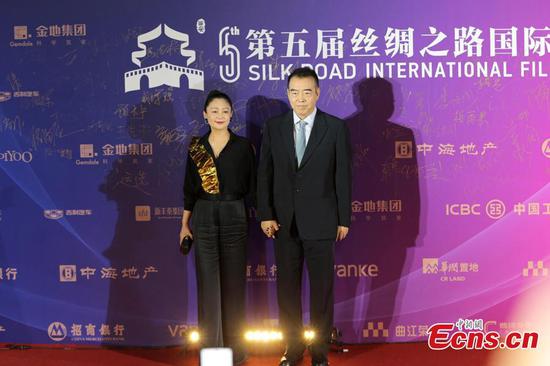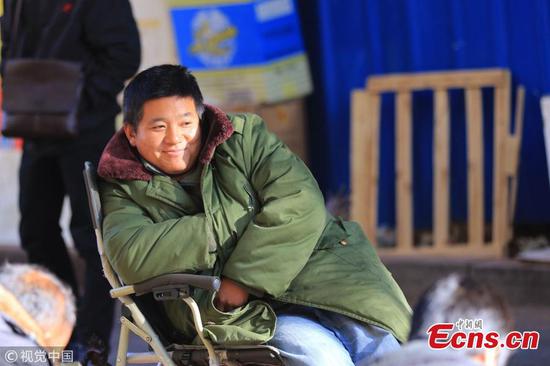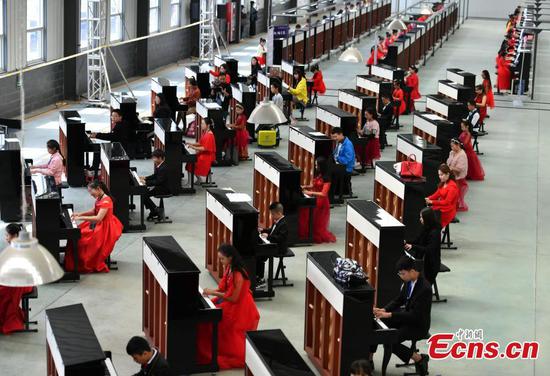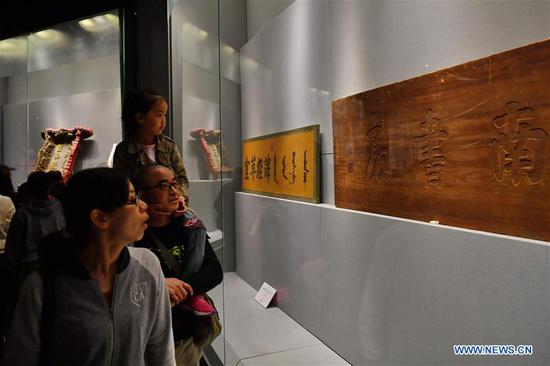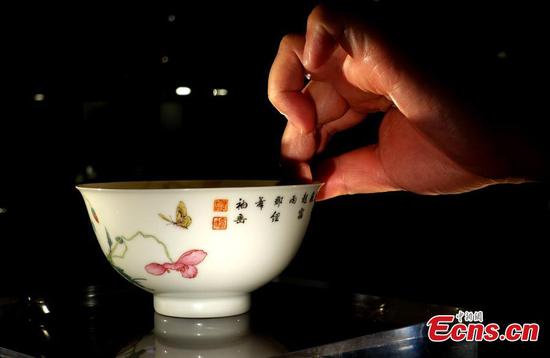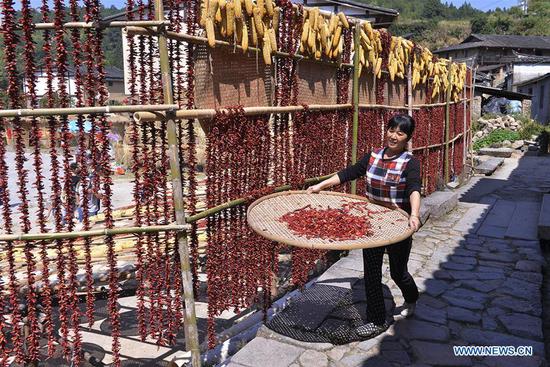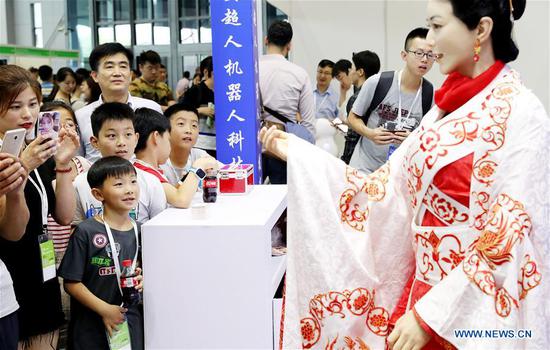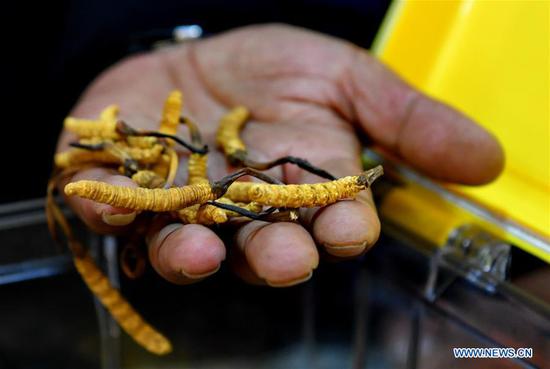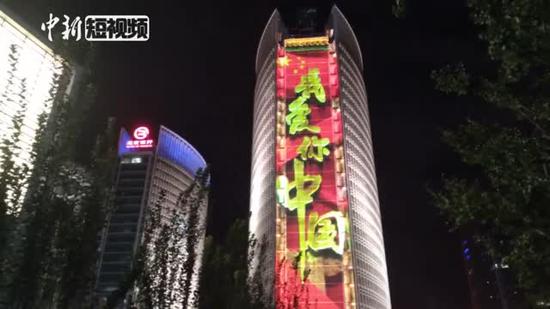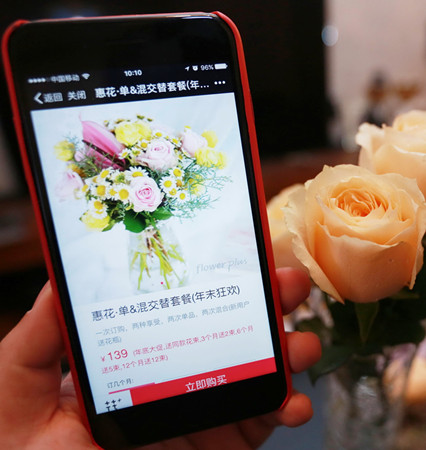
An order for flowers is placed through a WeChat app. (Photo/Xinhua)
Startups improving delivery capacity, especially cold-chain logistics, and strengthening service quality control
Flower culture has a long history in China, and flowers are typically used at opening ceremonies or big receptions. With a rising middle and high-income group, and millennials seeking high-end lifestyles, new opportunities are arising for Chinese e-commerce startup florists such as Reflower and Flowerplus.
These online retailers are opening more brick-and-mortar stores that double up as logistics centers, as affluent Chinese consumers have higher demands regarding the quality of fresh flowers, and the speed of delivery and distribution.
Government agencies and enterprises have traditionally been the market's main buyers, but new entrants have prompted a shift in that trend, promoting flowers as an everyday luxury consumer item.
Online florists usually offer weekly subscriptions at a considerably cheaper rate than individual purchases. For instance, Flowerplus packages start from as low as 20 yuan ($2.90) per week for a basic bouquet.
Consumers can set their taste preferences and delivery frequency online, pay through mobile payment apps such as WeChat Pay or Alipay, and then wait for their fresh flowers to be delivered straight to their homes.
Targeting the new generation of e-commerce customers, online flower retailers keep their clients engaged with new designs and ideas. Customers are also encouraged to share photos of their bouquets with friends via social networks.
Competition is fierce. Rose-Only, a Beijing-based startup founded in 2013, targets the high-end flower gifting market and sells rose bouquets from premium vendors. Another player, Beast, goes for high-end customers with lavishly decorated bouquets and packaging.
"Only when the roses meet the strict selection criteria can they be shipped to the factory for processing. Only one in every 100 is chosen," according to RoseOnly. The company has also introduced a variety of product lines such as rose jewelry, rose bears, musical balls and scented candles.
Shanghai-based startup Flowerplus provides regular flower delivery services directly to customers' homes. The company said it started to expand its offline channels at the beginning of this year. Its brick-and-mortar stores cover Beijing, Shanghai and Shenzhen.
During this year's Qixi Festival - also known as Chinese Valentine's Day, which falls on the seventh day of the seventh lunar month - customers living in Beijing and Shanghai could buy Flowerplus bouquets at Super Species, a fresh food store established by Chinese supermarket operator Yonghui.
Flowerplus said it will cooperate with Alibaba Group Holding Ltd's Hema Fresh food chain store and expand its presence in more cities through franchising in the second half of the year.
Like Flowerplus, Reflower said it also aims to open more offline franchise stores. Founder and CEO Zhu Yueyi said in April that the company had already opened 20 brick-and-mortar stores and plans to open about 100 more, which will be mainly located in first and second-tier cities.










